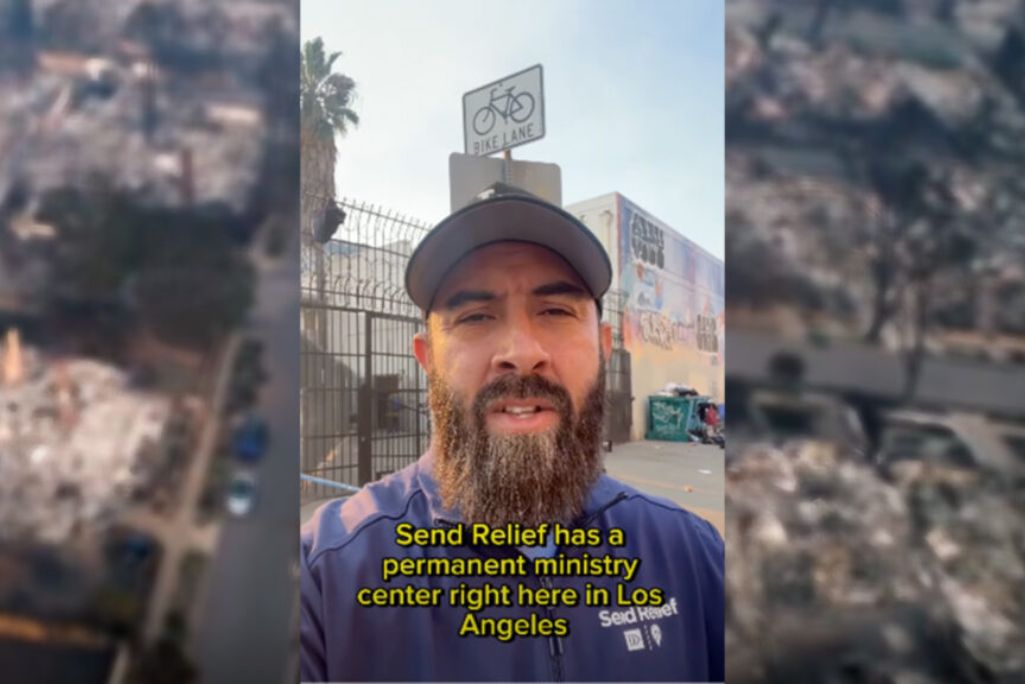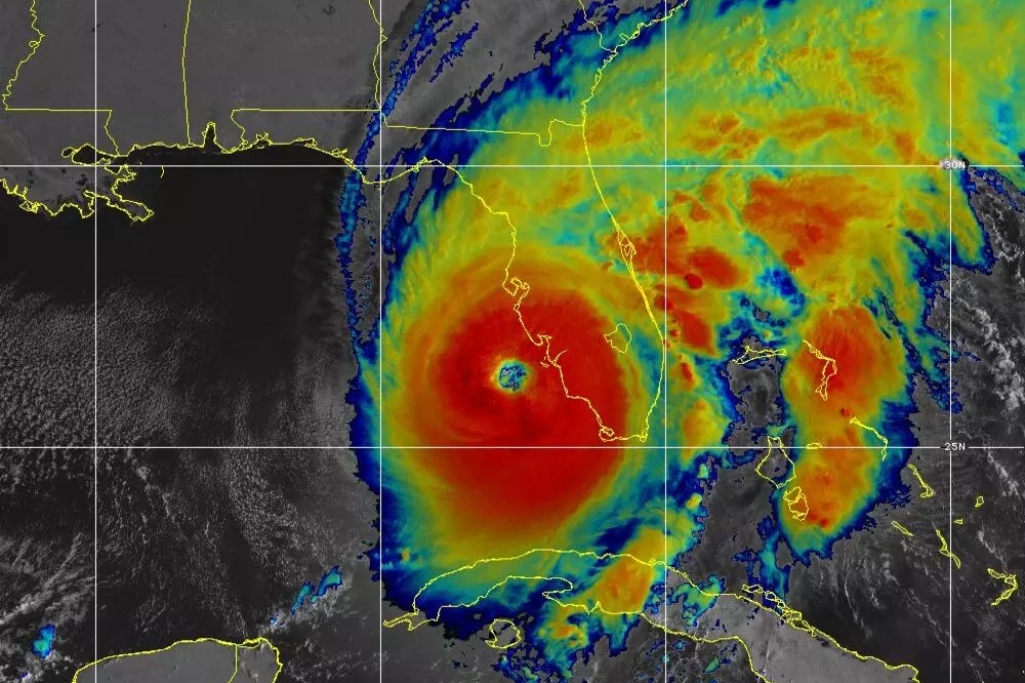
A plume of smoke ascended into the air after a “controlled breach” took place by Norfolk Southern Railroad in February after tankers carrying hazardous materials derailed near East Palestine, Ohio.
EAST PALESTINE, Ohio (BP) – Joe Sheely had a doctor’s appointment yesterday. It was for previous issues, such as a hernia. But he also found out during a CT scan that there are tumors on his lungs.
The news made for a night of little sleep. It also came five and a half months after a Norfolk Southern train derailment containing hazardous materials took place near his home.
“I’m not one to struggle with depression and anxiety,” said Sheely, pastor of Solid Rock Community Church in Salem, Ohio. “But my wife had a mild heart attack in May and now she’s on medication. With all of this, it feels like one attack after another.”
He and his wife, Carolyn Sue, left their home soon after the derailment and a “controlled breach” that produced a large fire and resulting cloud that settled over the area, including the Sheelys’ home.
“They called it a controlled burn, but it wasn’t. It sent that plume into the air and it came and rested right over our property,” Sheely said.
Hazardous carcinogenic chemicals such as vinyl chloride were in the derailment.
Sheely can’t claim the chemicals contributed to his recent diagnosis, but he also can’t help but think about it. He and his wife moved back home after Norfolk Southern assured them it was safe.
“They found traces of vinyl chloride in our water, but told us it was already there [before the derailment],” Sheely said.
Norfolk Southern has created a page online titled “Making it Right” that chronicles its steps toward addressing the aftermath of the derailment. That includes daily air monitoring and testing the drinking water in conjunction with the Ohio Environmental Protection Agency.
Despite those assurances, Purdue University professor Andrew J. Whelton is less than convinced.
“Toxins released by the derailment have caused acute health impacts,” Whelton, professor of Civil Engineering and Environmental and Ecological Engineering, told Baptist Press Tuesday (July 25).
Whelton has led research teams to the area to chronicle what he says Norfolk Southern and the EPA are refusing to acknowledge – assessing the danger to the long-term health of area residents is far from over.
Tensions remained high in East Palestine following the derailment, with citizens expressing their frustration to Norfolk Southern representatives. Seven members of a government investigative team in early March became ill while studying the crash site for possible health impact.
The University of Kentucky and Wayne State University have likewise studied the area. Whelton’s team from Purdue followed one made up of researchers from Carnegie Mellon University and Texas A&M.
His concern is that the data exists to show the likelihood of ill effects from long-term exposure to harmful chemicals such as vinyl chloride, but that those responsible don’t want to know about it.
“In my interactions with the EPA and Norfolk Southern, they have not been responsive,” he said. “Norfolk Southern has responded in no way that is helpful. The [Making it Right] website has little value for people to try and understand what happened and what to do about it.”
Contaminated water under buildings eventually contaminates the buildings themselves and the air inside, he noted. The EPA fell short of using the appropriate equipment to adequately check buildings in East Palestine and then chose not to examine other buildings, Whelton charged.
“I sent emails to them notifying them of this,” he said. “I also sent data but it has not prompted any change. I’ve contacted congressional representatives and implored them to react on their constituents’ behalf. They told me they have been in discussions with the agencies involved.”
At a July 6 information meeting, citizens expressed frustration over a lack of coordination among national and local agencies. This is leaving those who are sick without needed resources.
“Somebody has dropped the ball,” said one community member. “… People in East Palestine and surrounding areas are sick. There should be some collaboration in what’s going on.”
For instance, she had heard representatives from the Center for Disease Control were knocking on doors, conducting a study on the well-being of those inside.
“Well guess what, they went down Taggart Street. Never came down my street and asked us what’s going on. I’m very sick,” she said.
Though that speaker had insurance, many others do not, she added.
Looking for answers will continue, but competes with responsibilities that existed prior to the derailment.
The day after learning of his tumors, Sheely prepared to drive the 16 miles to Solid Rock Community Church. He admitted he felt weak, but it didn’t matter.
“I made a commitment to them,” he said.
(EDITOR’S NOTE – Scott Barkley is national correspondent for Baptist Press.)


